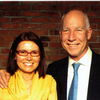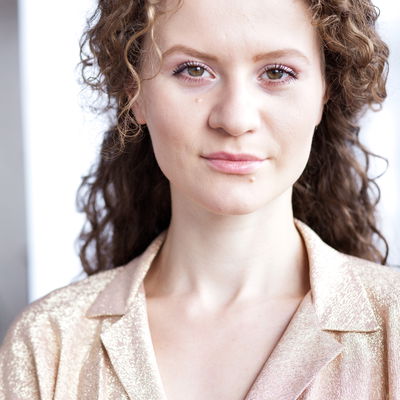
Bernstein, Chopin, Bach, Beethoven| D.J. Cleavinger, piano
North Easton
Sun, April 13, 2025, at 7:00 PM,
EDT
- Alcoholic and non-alcoholic drinks provided
-
Wheelchair access
- Not wheelchair accessible
-
- Some stairs may be present in the space
-
- Kid-friendly event
This is a groupmuse
A live concert in a living room, backyard, or another intimate space. They're casual and friendly, hosted by community members.
Host
L. Bernstein-S. Chen
Candide Overture
L. van Beethoven
Sonata in C minor, Op. 10-1
J. S. Bach
Prelude&Fugue in C sharp minor, Book I
F. Chopin
12 Etudes, Op. 10
D.J. (David Jesse) Cleavinger, a native of
Cincinnati, OH, grew up exploring many facets of the arts:
musical theatre productions through his school and
community, studio art - earning three gold medals in the
National Scholastic Competition, and numerous choral
performances through his high school and the Cincinnati
May Festival Youth Chorus.
D.J. completed his Bachelor of Music in Performance
from Miami University in 2021, under the tutelage of Drs.
Siok Lian Tan, Frank Huang, and Prof. Heather MacPhail.
He is currently completing his Master of Music in Piano
Performance at Boston University with Pavel Nersessian.
He has attended the American Institute of Musical Studies
(2018), Festival Baltimore (2019), the Gijón International
Piano Festival (2022), the Ian Hobson International Piano
Festival (2023), and has been privileged to work with
renowned artists such as Dror Biran, Kenneth Griffiths,
Jihye Chang, and Asiya Korepanova.
Since age 14, D.J. has served in churches as pianist,
organist, and vocalist, and is currently the Director of
Traditional Music at Faith Lutheran Church in Andover,
MA. He is an avid reader, a lover of languages, and a
frequent collaborator, enjoying both instrumental and vocal
opportunities
What's the music?
Leonard Bernstein's Overture to Candide is a well-loved work for orchestras and concert bands world-wide. This piano transcription opens with boisterous fanfares and a raucous main theme, but is soon juxtaposed by a warm lyrical melody.
This is a stark contrast, yet a perfect match to Beethoven’s C Minor Sonata, Op. 10, No. 1, as the opening Allegro displays a similar ascending motif opposing a lamenting dialogue — typical of late-Classical 'Sturm und Drang' style (storm and stress). The ensuing material finds a much simpler, lilting melody which unfolds over bell-like chords, but soon reprises an air of mischief as the opening rhythmic idea is combined with such pleasant harmony.
The Adagio molto needs no description; it is another of Beethoven’s gorgeous eye-of-the-storm movements, a serene meditation from the drama of the two outer movements. His Finale shows off the orchestral nature of his keyboard writing: string tuttis, brass fanfares, and full use of the instrument’s color palette.
J.S. Bach's Prelude and Fugue in C# Minor is an intense and unparalleled work, full of darkness; though it is just 8 minutes long, it could easily fill a whole academic thesis. The prelude is tragic, to put it mildly, but pales in comparison to the fugue, a numerological interweaving of the utmost profundity. It is a 5-voice fugue (a rarity, even for Bach) which opens with a yearning 5-note subject (an homage to the 5 wounds of Christ on the cross, as well as the 5 ‘Messianic’ Psalms in which Christ speaks in the first person, notably Psalm 22); its stoic nature and lasting presence in the whole work permit its designation as the ‘Father’ subject (the Alpha and Omega - Rev 1:8). The ‘Spirit’ subject marks the second fugal region: hovering, recurring eighth notes permeating the rhythmic and harmonic texture. And the ‘Christ’ subject, a seven note theme, can be lyricized with Eli, lema sabachthani (My God, why have you forsaken me?) This outcry of Christ before his death is found in Matthew 27:46; 27+46=73, at which measure the ‘Father’ theme critically reemerges in the lowest register of the keyboard. The third fugal region is marked when the ‘Spirit’ theme drops out, leaving Christ to contend with the incessant repeating of that question: Why is it that the omniscient, omnipotent, omnipresent Father could permit his only Son to suffer such a fate? The answer, in the final bars, turns nobly towards Easter morning.
Chopin’s cycle of Etudes, Op. 10 are a different journey, each a small excursion to a new land, properly described by musicologist, Artur Bielecki:
“With Chopin, the technical problem (an excellent study for the pianist!) is only a point of departure, an impulse to the creation of a unique work. The greatest difficulty becomes the greatest beauty, the exercise a poem. The listener is astonished by the wealth of sounds and the irrepressible momentum of the études, or by the tunefulness of their melodies. Through the études, Chopin defined his innovative pianistic style, wrote his ‘gospel of piano music’. These [complete sets of Etudes, Opp. 10 and 25] paved the way for the etudes of Liszt, Scriabin, Rachmaninov, Debussy and Ligeti.”
Location
Exact address sent to approved attendees via email.
This is a groupmuse
A live concert in a living room, backyard, or another intimate space. They're casual and friendly, hosted by community members.
Host
Attendees





 Continue with Facebook
Continue with Facebook
 Continue with Google
Continue with Google
 Continue with Apple
Continue with Apple
Comments
Comment sections are only for participants.